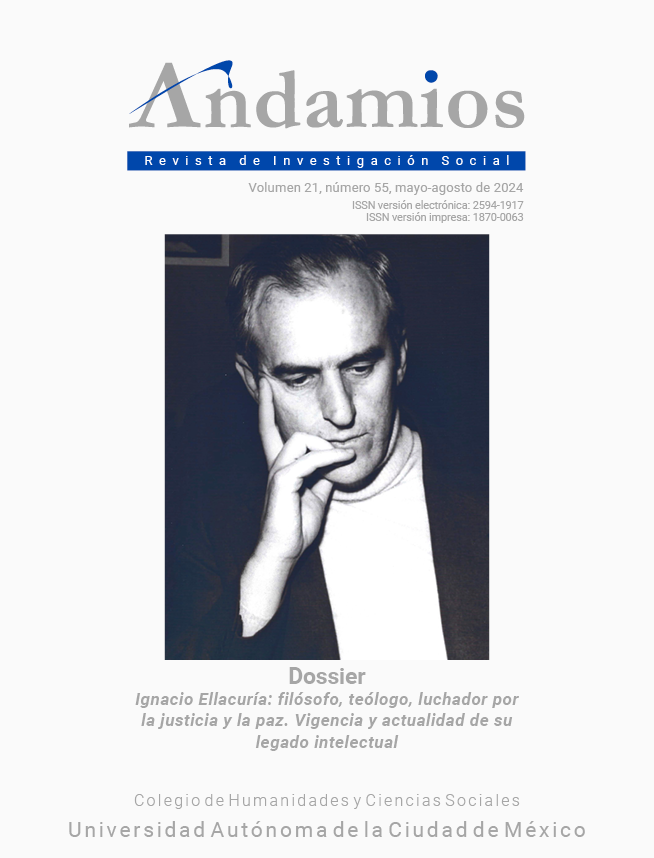Subdesarrollo y Derechos Humanos
DOI:
https://doi.org/10.29092/uacm.v21i55.1096Keywords:
Texto inédito, Ignacio Ellacuría, Subdesarrollo, Derechos HumanosAbstract
Ignacio Ellacuría, a medida que su prestigio y reconocimiento crecía tanto como pensador y como hombre de acción que luchaba a favor de la justicia, recibía muchas invitaciones para participar en eventos a escala global. El inédito que acá se presenta contiene el discurso pronunciado por Ellacuría durante el Tercer Encuentro Internacional de los jóvenes en Venecia, organizado por alguna organización católica o cristiana de relevancia, en el año de 1987. Estamos hablando ya de un Ellacuría con un pensamiento filosófico y teológico de gran complejidad y madurez pero que, sin embargo, es capaz de colocarse en un plano de empatía y cercanía con la juventud, en este caso europea y, por tanto, privilegiada en términos de acceso al bienestar material. En el discurso Ellacuría logra con un persuasivo lenguaje apelar a dicha juventud, a su energía, imaginación y racionalidad para despertar en ella la conciencia de los males que la injusticia ocasiona en el más extenso y hondo mundo subdesarrollado. La tesis general que desarrolla en este discurso sostiene que la insolidaridad entre los pueblos es la base de la mayor parte de los problemas del subdesarrollo y es asimismo una de las principales fuentes que alimenta el abuso ocasionado a través de las graves violaciones a los derechos humanos. Se trata de un discurso, que salta a primera vista, guarda hoy en día la mayor vigencia y actualidad.
Downloads
Published
Issue
Section
License
This Journal is licensed under Creative Commons Mexico 2.5. It is allowed to reproduce and disseminate the contents of the Journal for educational or research purposes, not for profit, as long as they are not mutilated and cite the source (Andamios, Revista de Investigación Social) and the author.
The copyright of the articles published in Andamios, Revista de Investigación Social are transferred by the author(s) to Universidad Autónoma de la Ciudad de México when the originals have been accepted, so that they are published and distributed both in the printed and electronic versions of the Journal. However, as established by law, the author(s) retains their moral rights. The author(s) will receive a form of assignment of copyright that they must to sign when their original has been accepted. In the case of collective articles, the signature of one of the authors will suffice, provided that the latter has obtained the consent of the others.
Authors may use the material of their article in other works or books published by themselves, with the condition of quoting Andamios as the original source of the texts.
The articles contained in this publication are the responsibility of their authors and do not compromise the official position of Andamios, Revista de Investigación Social of the Universidad Autónoma de la Ciudad de México.


